Best Ayurvedic Herbs For Daily Use: Ayurveda embraces a holistic approach to nurturing harmony between mind, body, and spirit. This ancient Indian healing tradition recognizes nature’s restorative powers; incorporating herbs becomes integral. Many potent botanicals fortify well-being when consumed routinely. Exploring the best ayurvedic herbs for daily use benefits illuminates myriad options suiting individual constitutions.
- Turmeric: The Golden Spice
Turmeric tops lists frequently due to its anti-inflammatory curcumin content. This vibrant rhizome offsets occasional aches additionally boosting immunity antioxidants and combat free radicals. Ample evidence supports turmeric efficacy; multiple studies validate the utility of managing osteoarthritis cardiovascular issues. Modern cooks utilize its earthy warmth imparting dishes rich golden hues. Turmeric constitutes an excellent foundation for Ayurvedic routines. If you want the best Ayurvedic medicine list with disease, you can visit the Mshaque Clinic. Dr. M. S. Haque and Dr. A. Perwaiz, two of our finest ayurveda specialists, will provide you with the greatest natural care.
- Ashwagandha: Indian Ginseng
Ashwagandha earned renown as an adaptogen moderating stress influences. Classified Indian ginseng this versatile root prevents adrenal burnout reducing anxiety promoting sound slumber cycles. Ayurvedic practitioners value ashwagandha in treating male sexual dysfunction; compounds appear to enhance testosterone production justifying the exploration of reproductive benefits. Initial investigations likewise hint at neuroprotective properties providing cognitive support. This is one of the best Ayurvedic medicine for overall health.
- Triphala: The Triple Fruit Force
Triphala combines three fruits: Amalaki Bibhitaki Haritaki. This trifecta ranks among Ayurveda’s most revered herbal formulas balancing tridoshas and sustaining internal equilibrium. Triphala cleanses gently stimulating elimination and averting constipation. Beyond laxative impacts constituents demonstrate antimicrobial antioxidant effects; studies confirm antiaging antiinflammatory applications. Triphala exemplifies ayurvedic synergy yielding greater advantages in blending components.
- Brahmi: Mind-Boosting Bacopa
Brahmi represents another Ayurvedic superstar revered longevity promoter improving intellect. Bacopa monnieri’s bioactive bacosides exhibit neuroprotective memory-enhancing capabilities supported by scientific scrutiny. This creeping herb targets cognitive deficits associated with neurodegenerative disorders displaying promise in Alzheimer’s disease interventions. Bacopa monnieri’s anxiolytic traits counteract anxiety while bolstering concentration warranting consideration of students and professionals seeking mental stamina. This is one of the best ayurvedic herbs for daily use.
- Guggul: Multi-Purpose Resin
Ayurvedic medicine touts guggul’s cholesterol-lowering potential deriving Commiphora mukul’s resin. Compounds guggulsterones inhibit synthesis blocking metabolic pathways triglyceride formation. Beyond cardiovascular benefits, practitioners value Guggul’s hypothyroidism treatment potential to stimulate sluggish thyroids. Guggul possesses anti-arthritic properties allaying joint discomfort. Ancient texts describe using guggul ointments to soothe skin irritations suggesting versatile applications.
Best Ayurvedic Herbs For Daily Use: Individualized Ayurvedic Herbology
Preferences and personal constitutions ultimately guide herb selections. Pitta individuals combat inflammation by selecting cooling botanicals like amalaki chamomile while vatas stabilize warmth by consuming ashwagandha bala ginger. Kaphas encourage motility favoring stimulating herbs triphala guggul cumin. Evaluating synergistic combinations like Triphala optimizes ayurvedic advantages; herbal preparations interplay delivering optimal efficacy. If you want the best Ayurvedic herbs list, you can visit the Mshaque Clinic. Dr. M. S. Haque and Dr. A. Perwaiz, two of our finest ayurveda specialists, will provide you with the greatest natural care.
Best Ayurvedic Herbs For Daily Use: Integrating Botanicals Safely
Incorporating ayurveda’s botanicals elevates preventative self-care routines accessing millennia-tested traditions. Awareness of dosages becomes paramount; excessive ingestion risks potential toxicities especially to pregnant nursing women children elderly individuals with existing conditions. Consulting qualified ayurvedic practitioners guides prudent herb integration matching remedies individual needs biochemistries. For natural treatment, you can go to the Mshaque Clinic. We have the best Ayurvedic doctors who can give you the best Ayurvedic medicine for strength and stamina.
Our Other Articles :
5 Ayurvedic Remedies To Manage High Blood Pressure- All You Need To Know
Diabetes Symptoms And Causes- All You Need To Know
Difference Between Diabetes Mellitus And Diabetes Insipidus- All You Need To Know
5 Ayurvedic Herbs To Get Rid Of Skin Problems- All You Need To Know
Best Ayurvedic Herbs For Hair Growth- All You Need To Know
Best Ayurvedic Herbs For Daily Use: Rejecting Generalizations
Generalized herb rankings undermine Ayurveda’s holistic philosophies acknowledging myriad bodily humors influencing herbal appropriateness. Turmeric ashwagandha triphala certainly displays robust advantages complementing overall well-being. However ayurvedic herbology embraces nuances necessitating individualization and optimal synergistic herbal protocols.
Best Ayurvedic Herbs For Daily Use: Seasonal Ayurvedic Herb Adjustments
Ayurvedic wisdom further accounts for seasonal shifts impacting herbal needs. Warming herbs like ginger constitute winter allies kindling digestive fires and repelling chills. Spring suggests transitioning lighter cooling foods herbs like fennel coriander minimizing excess bodily heat. Summertime favors bitter flavors promoting detoxification; neem tulsi demonstrates cooling purifying effects. Autumn emphasizes grounding herbs like ashwagandha balancing vata. Rotating ayurvedic herbs seasonally fortifies constitutions preventing imbalances.
- Neem: The Village Pharmacy
Regarded Ayurveda’s most versatile panacea neem addresses diverse conditions topically internally. This bitter tree’s leaves contain active compounds like nimbidin exhibiting potent anti-inflammatory immunomodulatory antimicrobial properties. Ayurvedists utilize neem to regulate blood sugar preventing urinary tract infections and purifying blood-reducing fevers. Neem seed oil treats skin affections like eczema and psoriasis; dental applications include antigingivitis remedies. Varied neem preparations demonstrate far-ranging utility making inclusion wise ayurvedic regimens. This is one of the best ayurvedic herbs for daily use.
- Tulsi: The Incomparable One
Tulsi commonly known as basil occupies exalted status in Ayurvedic traditions earning “The Incomparable One” honorific. Revered worshipped this aromatic herb credited lifespans promoting longevity. Tulsi exhibits antioxidant antimicrobial pain-relieving capacities attributed to phytochemical eugenol additionally lowering blood sugar lipids. Preparations treat respiratory conditions like bronchitis benefiting asthma cough fevers further alleviating stress. Followers incorporate tulsi daily diet teas maintaining preventative protocols harnessing tulsi’s protective advantages. For natural treatment, you can go to the Mshaque Clinic. We have the best Ayurvedic doctors who can give you the best Ayurvedic herbs for hair.
Best Ayurvedic Herbs For Daily Use: Customized Ayurvedic Blends
Beyond singular herbs commercialized ayurvedic formulations synergistically combining botanicals gain popularity globally. Curated ayurvedic mixes address specific constitutional needs following individualized evaluations. For instance, “Triphala Plus” augments the triphala classic by featuring additional cleansing herbs like bhumyamalaki Chitral’s gentle laxative actions. Ashwagandha mixes like “Ashwa Blend” incorporate complementary adaptogens like shatavari promoting virility anti-aging effects. Ayurvedic companies refine therapeutic formulations embodying ancient herbal wisdom and modern quality standards.
Best Ayurvedic Herbs For Daily Use: Culinary Ayurvedic Approaches
Integrating culinary herbs becomes another avenue for embracing Ayurvedic herbology. Staples like turmeric cumin and coriander fennel demonstrate carminative properties kindling digestive fires and balancing intestinal ecologies. Spices like cinnamon clove cardamom augment sweet cravings naturally sans refined sugars. Fenugreek facilitates lactation supporting breastfeeding mothers while bitter neem regulates blood sugar. Onions garlic used judiciously offset excess kapha. Mindful Ayurvedic cooking manifests recipe wisdom influencing metabolisms and preventing imbalances.
Best Ayurvedic Herbs For Daily Use: Conclusion
Ayurvedic traditions spanning millennia explored nature’s vast botanical pharmacopeia distilling applicable plant-based remedies. Excavating ayurvedic herbs illuminates myriad daily use benefits promoting holistic well-being and combating ailments. Accessing this profound herbal wisdom, however, necessitates individualized implementations avoiding overgeneralized one-size-fits-all prescriptions. Consulting qualified experts to ensure proper dosages matching herbs’ constitutions delivers Ayurveda’s fullest advantages. Integrating compatible Ayurvedic herbs seasonally culinary and medicinally engenders preventative self-care sagaciously embodying Ayurveda’s balanced lifestyles.
Experience the profound healing power of Ayurveda at Mshaque Clinic. Our skilled practitioners craft personalized herbal regimens tailored to your unique constitution, restoring balance and vitality. Embrace ancient wisdom, and unlock optimal well-being. Make an appointment for your consultation right now to start your path towards holistic health.
FAQs
Which Ayurvedic medicine can be taken daily?
Many ayurvedic herbs are suitable for daily use, but selection depends on individual needs. Turmeric, with its anti-inflammatory curcumin, is a popular daily tonic. Triphala, a three-fruit blend, promotes gentle detoxification. Ashwagandha, an adaptogen, helps the body cope with stress. Brahmi (bacopa monnieri) enhances cognitive function. However, appropriate herbs and dosages vary based on one’s mind-body constitution and any imbalances. Consulting an Ayurvedic practitioner ensures optimal daily herbal recommendations.
Which herb is king of Ayurveda?
In Ayurvedic medicine, holy basil, or tulsi, is regarded as the “Queen of Herbs.” Considered a tridoshic rasayana (rejuvenating), tulsi balances all three doshas – vata, pitta, and kapha. It’s prized for its antimicrobial, anti-inflammatory, analgesic, and antioxidant properties. Tulsi detoxifies the body, reduces stress, boosts immunity, and protects against chronic diseases. Its versatility in treating various ailments earns it the royal status as Ayurveda’s king herb.
Which Ayurvedic medicine is best?
There is no definitive “best” Ayurvedic medicine, as remedies are tailored to each individual’s unique mind-body constitution (Prakriti) and imbalances (vikriti). Common herbs like turmeric, ashwagandha, triphala, and Brahmi offer general wellness benefits. However, Ayurveda emphasizes personalization based on factors like age, climate, diet, and lifestyle for optimal results. Consulting an experienced Ayurvedic practitioner ensures receiving the ideal herbal formulation for one’s specific needs.
Which is the most researched Ayurvedic herb?
Turmeric (Curcuma longa) is one of the most rigorously researched herbs in Ayurvedic medicine. Its principal compound, curcumin, has been extensively studied for its potent antioxidant, anti-inflammatory, and potentially anti-cancer effects. Numerous clinical trials have evaluated turmeric’s efficacy in various conditions like arthritis, metabolic disorders, neurological diseases, and cancer. Turmeric’s multi-targeted therapeutic activities and relative safety make it an important subject of modern scientific validation.
Content Checked and Verified By

Dr. A. Perwaiz
B.U.M.S (KOL) IMRP (OXFORD, UK) FIID (UNSW) AUSTRALIA)



